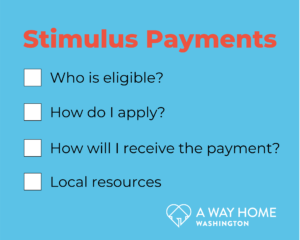In a matter of weeks, the COVID-19 outbreak has created the conditions that could lead to a huge influx in our state’s youth homelessness system. A spike in unemployment, an economic downturn, instability in every sense. All this puts young people who’ve worked very hard to secure stable housing at risk of returning to homelessness.
At the same time, this crisis has led society to see that we need to do more to support the most vulnerable people in our communities. The past few weeks have brought on eviction moratoriums, decarceration efforts, a newfound dedication to housing everyone. In this moment of creativity and inventiveness, we need to capitalize on every opportunity to effect the system-level and policy changes that will help us end youth and young adult homelessness.
In the social sector, our organizations’ platforms and voices are one of the tools we have at our disposal to push for change. We’re also responsible for listening to the people we serve, and focus our energies on efforts that will make a meaningful difference in their lives. For us at A Way Home Washington, one of those efforts has been providing young people with information on how to get their federal stimulus payments.
In my recent conversations with young people experiencing housing instability, I’ve heard them say that access to cash would go a long way to help them stay housed right now, and the stimulus payment would give them just that. Many young people who have experienced homelessness have experienced the trauma of dealing with complex systems that weren’t designed for them, and have rightfully lost trust. The young people I talked to had little hope that they’d actually receive the payment. Filling out forms, updating their banking information, making sure the payment came to the right place – all of it felt too overwhelming.

I’ve come across a lot of amazing, detailed guides on the stimulus payment for service providers, like this comprehensive guide from YMCA. I felt a different resource was needed, too – one that could outline the information young people needed in the most straightforward way possible. I also wanted to create something that could be shared directly with young people through the channels they’re already plugged into, like social media. Our in-house communication capabilities and our access to local organizations in the Anchor Communities positioned us to create a stimulus payment social media toolkit and add to the resources that already existed.
Many young people experiencing homelessness have bounced around from place to place, have never had to file taxes, and are now disconnected from schools or service providers that may have helped them complete these types of processes before. All of this leaves them disempowered in the face of this crisis and uniquely positioned to not receive their stimulus payment. The toolkit includes the contact information for local resources in our Anchor Communities, helping connect young people with other support they may need. Many of these resources, like the Youth Engagement Team in Walla Walla and the ACT outreach team in Pierce County, exist in part because of Anchor Community Initiative funding, and now more than ever it’s important for young people to know that these resources are there for them, right in their own community.
If even one young person receives their stimulus payment because they saw the information we provided, it was worth investing time and resources into creating the toolkit. We are living through possibly the biggest upheaval we’ll experience in our lifetime. This moment has taught me the importance of pivoting quickly, intentionally creating space to hear from the people most affected, and decisively stepping into roles where we can be uniquely supportive. There is such a strong connection between our mission to end youth and young adult homelessness and the work of responding to this pandemic, and it is our responsibility as non-profits, as advocates, and as community members to create a society that is always ready to respond to the needs of those furthest from justice.
Help us share the stimulus payment social media posts far and wide! The toolkit includes text for Facebook posts and a set of images, in English and in Spanish.

Leave a Reply